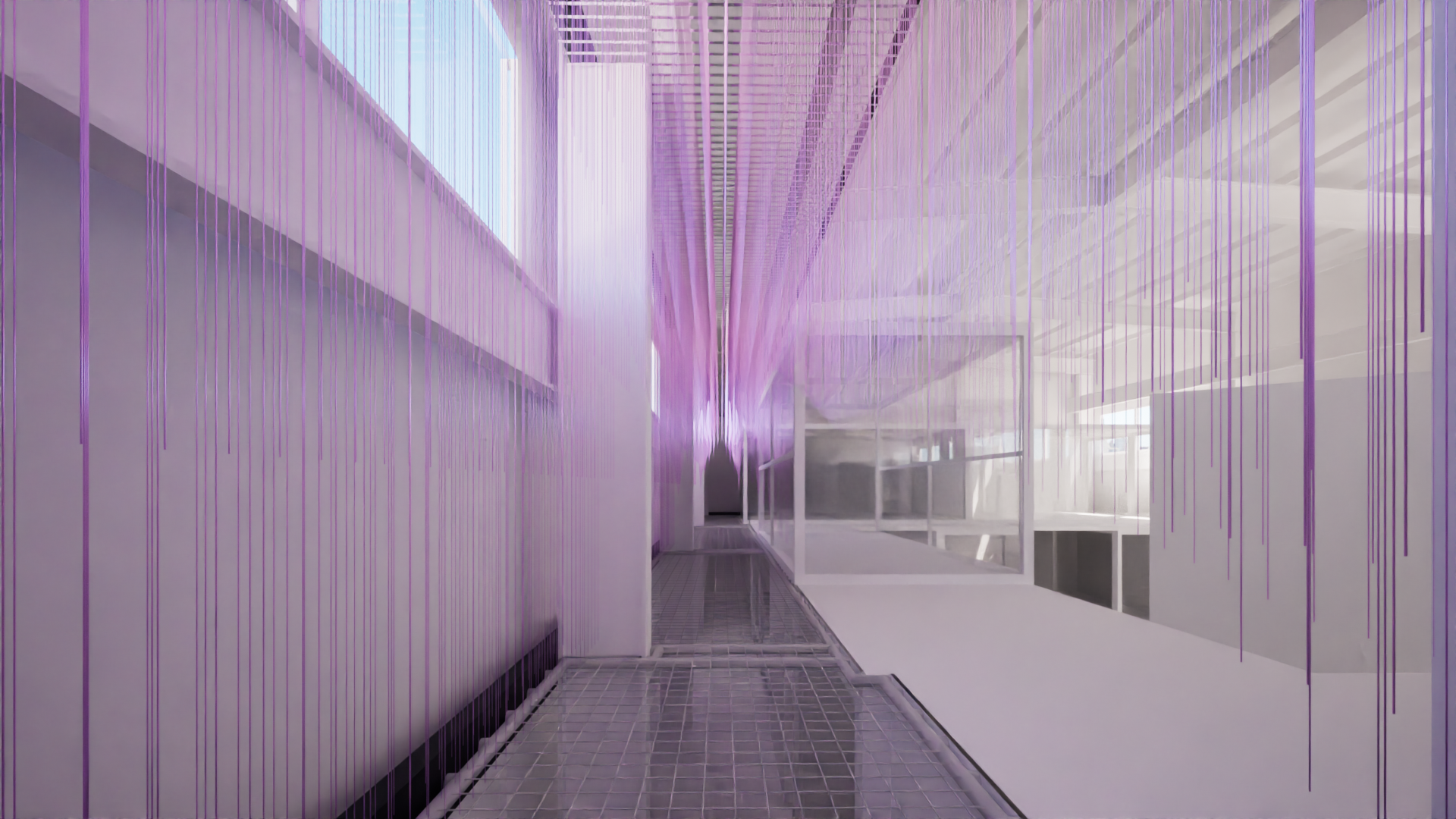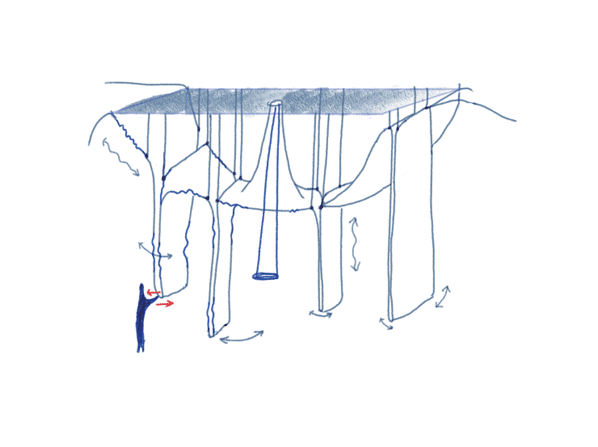A poetic transformation of the universe inside IdeaSquare
«Throughout history, human beings across the world lived with gardens in different ways upon their environmental and cultural factors. For instance, Japanese gardens poetically transform the essence of the universe embracing humans as a part of nature.» – Dr. Yuri Tanaka, Prof. Kosuke Bando, Ms. Zhuoan Dai, Ms. Junyi Guo, Ms. Mao Hasegawa, Mr. Joh Yamasaki


An artist, an architect, an experimental physicist, and Master’s students in environmental design, ideate the design of an interdisciplinary collaborative project to create a "garden" inside IdeaSquare. Dr. Yuri Tanaka has been a innovator in residence at CERN and IdeaSquare since 2018 and coordinates the project (still in a conceptual phase). She has been pursuing to create a diverse collaboration mediated by "the universe" as a mutually acceptable idea among different experts. Collaborating with Micheal Doser and Umut Kose, she already led several projects such as the Particle Post, mingling muon detection, sound and light.

The idea sparked when Tuuli Utriainen, Collaboration Enabler, and Markus Nordberg, IdeaSquare Manager, had the wish to renovate a container to make a futuristic space. The simple idea raised complex questions, one of which was: what does “the future” means? Reflecting on a place that should represent another time led Yuri to the founding concepts of Japanese gardens.
Japanese gardens are based on Buddhism, Confucianism, and Taoism. In Buddhism for example, past, present, and future are all the same. I find it also resonates with some ideas of physics. Of course time passes, but there is only the present. It happens and it is just how it is.

Collaborating with Micheal Doser, who has a talent for explaining physics to people from outside, she was able to explore a design that can touch on the essence of the universe, and as we are part of it, humans too. What best place to take a step back and think than in a garden?
A garden can open up the freedom of human minds.
Her work on this project is inspired by the idea of Mirei Shigemori, Japanese designer, that gardens can be seen as “poetic transformations of the universe”.
They are trying to express with these microcosms the world we perceive; our environment, and the universe.
For Yuri, this idea is interesting not to question what science found, but to try to unveil the essence.
I always use the term "poetic transformation" in order to enhance new expressions. So it is not something about Japanese or Western, or botanical gardens. Not art, not science, but something that we call 中道 (chudo): all the things are integrated, and you will find something new, something balanced, mutual. Not only universal but also very unique.
Together with scientists, colleagues, an architect, and her students, they have shaped the idea into different design iterations.
For me it is very important that we are making something that humans can feel. That we are here, we have humanity, and we live in this universe. So I thought maybe it can be nice to make spaces that can be humanized.
At the center of all her works, you will always find an attempt to create dialogue. Through this, she aims to always infuse hope and foster connection between very different actors and fields.
The most important thing for me is to have dialogue, communication with people here at CERN, so that we can develop ideas together. This dialogue can help me think about what I can do to share the pleasure of the beauty of the universe. Art and the universe are things that people in general think have nothing to do with one another. Actually, it's very deeply connected.
Dr. Yuri Tanaka has worked in different countries, for universities, institutions, and art/science festivals. When asked why she chose to have a residency at IdeaSquare, her answer underlines the open-mindedness of the place.
I think it's the openness of IdeaSquare. Because anytime I can propose something, I can talk about crazy things, and we can develop something together in practice. For me, this is a place where I can create something that I would like to realise, to make it real. I think there is respect for anybody. They respect different kinds of people, and I'm also having respect for other people. Also, coming from Japan, it is also good for me to have international collaborations. IdeaSquare allows more creation out of what we already know, what already exists. It is the fundamental nature of research.
For Yuri, the link between art and fundamental research is deep-rooted. Even if science goes into the very technical aspect, it is all about understanding the universe around and within us. She focuses on the essence of this understanding to bring it to light and use it to create change.
I'm more interested in very fundamental basics. It is through basics that we can transform our state of mind, which I think is the profound power of art: that we can change our way of thinking, we can know how we perceive the world and the universe.
This project is supported by Toshiaki Ogasawara Memorial Foundation.















